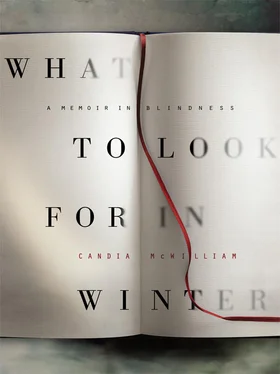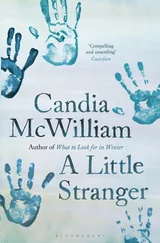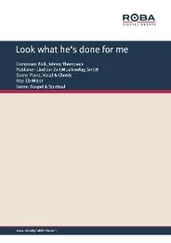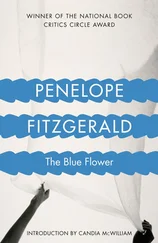I do not think that we can at this distance know the truth.
I do not think that we could even then have known the truth or seen it.
I have very often wanted to take from her thoughts whatever it was that so hurt her that she felt she had to die, and to replace it with the complete certainty that she is loved, and that by people, my children, their fathers, who never even knew her. I do not know how I know this save that she has grown less fragile, less contingent and less fantastic in my mind, the longer she has been dead. In life she felt frail to me, like a story, unless stories are not frail.
My house in Oxford lay, and still lies, last in a Regency cul-de-sac of artisans’ houses behind an almost Georgian street that is at right angles to the comely parade of Beaumont Street that itself holds both the Ashmolean Museum and the Randolph Hotel.
I finished writing the last chapter you read on Ash Wednesday 2007. I am now speaking to you.
Deeper into the year on a hot May day, I very nearly burned my house to ash. Being an old terraced house made of wood and lath, it might as well have been a blue touchpaper.
As had become usual, I couldn’t see that day. I had become used to groping my way up and down the narrow staircase of the house, much as you do on a boat. For reasons to be seen, I have spent a good deal of my life in boats. Nonetheless, I am no good in on at or with them. I had acclimatised myself to the layout of the house but still banged into things and fell over frequently, especially over the piles of books. The things I loved had, though I didn’t know it, become a danger to me, and twice I slid gratingly face first down a flight of stairs over a slither of hardbacks, old TLS s and magazines. I was used to having bloody knees like a schoolboy and bruised hips like a mother with a granite baby. That hot day I was as usual pretending to myself and to the nobody at all who was looking that everything was all right.
I had run dry on doctors. My condition’s intractability either exasperated or baffled them and such significant words as ‘referral’ and ‘Queen Square’ had been muttered. One psychiatrist who vividly reminded me of the Scottish wizard Michael Scott who is mentioned in the Purgatorio , said that I had chosen to close my eyes against the unbearable sight of Fram’s happiness with his new love Claudia; I came back with the old argument — that since I love him I wish him to be happy. There was an air of psychological manipulation in that expensive room that might be better kept for playwrights than appointed healers.
There was the episode of the wonderfully named Alexina Fantato, who turned out to be not a strapping Italian glamourpuss with sexy but stern spectacles but a dear lady from Scotland married to an Italian. There’s a tradition in Scotland for these feminine-ending masculine names, Donalda, Kennethina. It seems that all note of disappointment is unintentional, unlike those long declensions of heir-hungry hermaphroditic names to be found in Burke. Alexina shrewdly saw that I had ‘issues’, as she kindly expressed it, with self-esteem. I made my usual noises about preferring to live by suppression than by spillage. She made a sensibly pawky face of disbelief at how someone this old could so mismanage her life.
When Proust comes to his account of the death of Marcel’s grandmother, the old lady and her grandson pay a visit to a distinguished doctor whom the narrator will not even dignify with an invented name. Simply referring to the smug physician with his failure in humane understanding, the prerequisite of good doctoring, as Professor E—, Proust has the man manifest his heartlessness and hypocrisy under cover of a decorous but fishy anonymity. My own Professor E — washed his hands of me in sight of a witness, Claudia, whose sharp large blue gaze saw and recorded it all. She is more direct than I could ever even try to be. Professor E—, intelligent, disinfected, effective, spoke:
‘I have done all I can for you. Some people may suggest that there is a non-physiological aspect to this unhappy condition of yours, which is always a distressing one. They are wasting their time and they would be wasting yours. You will not find it profitable to go down that route.’
I am still cleaving my way down that route, although the route itself has sometimes seemed to be narrowing, the stream drying up to reveal only little pebbles, hard stones hardly wet at all even by the grace of artificial tears, and this book is part of the walk following that diminishing way to some kind of resolution, if not the open lens of sight itself. Of course it is physiological; of course the cause of my blindness is neurological. But who says the life lived is separate from the body that has lived it?
Back to that stuffy day in May, my cats and I shut in the small wooden house. I was in my workroom and felt my eyes’ heat and discomfort become sharper. I pulled them open, unsticking my eyelashes. Even peeled, my eyes saw nothing. But this nothing was not black or stippled or veiled or any shade of the blindings I had grown used to; it was thick white.
That is how slow I was to realise that my small house was full of smoke. I did not think at all, which must have saved my life. Usually I am a great one for telling myself not to make a fuss and certainly not to bother other people, especially not the already overloaded public sector. I banged my way to the telephone, rang 999 and got a woman in Glasgow.
For the first occasion in my life, and not the last, I used my newly acquired unfair advantage, and I expressed it in words that felt like rhubarb in my teeth. ‘My house is on fire. I’m partially sighted.’ The woman with the reassuring Scots voice asked where I was and I replied to her as if we were sharing a sofa and a biscuit, ‘I’m in Beaumont Buildings. It’s a street in Oxford. It’s not a building.’
On I prattled in my burning house.
‘We’ll be with you right away, dear. Hold on and get out of the house right away, closing all doors you can behind you.’
‘But I’ve two cats.’
‘You’ll have to leave them.’
Now I see how patient she was with me, with all the flaming nation clamouring for her attention.
I didn’t obey and I did try hopelessly in the, I was now aware, reeking house to find my cats. I chased them, for some reason I can’t understand, into the basement and shut them in, or so I thought, but my thinking was as fogged as a choking drunk’s, and I was left to reflex alone and to action, perhaps my two weakest behavioural suits.
All that in a whisker. I was soon in the street with three fire engines and a score of strong young competent people. Yes, a firewoman too, and all of them concentrated on reducing harm and bringing later calm.
A neighbour took me in. A fireperson like the young Hector stayed with me and asked my neighbour to make tea. He actually asked me whether or not I took sugar. We conversed. Again it was the sofa and biscuit feeling. I learned that he was a keen hunt-follower, and that he and his wife couldn’t afford to buy a house in the Oxford area so that he had a long commute to his extraordinary work.
‘In fact,’ he said, ‘we’re really grateful to you because we had a city councillor visiting the station with a view to cutting down the service. Then you came through. You won’t mind my saying that it’s extra good you’re blind.’ How could I not love him?
Two hours later, everything but my oven was spick and span. Having seen smoke damage and water damage and having lost one house to arson, I was astonished. It was just like magic. The ‘emergency services’ had been heroic, the staled newsreader’s words had immediate Homeric meaning. These stern-faced young people had entered the house, located the source of the smoke, hacked the oven out of the wall, taken it outside, extinguished what turned out to be spontaneous chemical smouldering, sucked all the smoke out of the house, swept the kitchen, wiped the surfaces, and all but put a nosegay on the draining board. They had also attended to any over-spilling olfactory offensiveness that might have been caused to my next-door neighbour who had of course been regrettably interrupted by the bells and smells of the fire engines.
Читать дальше











